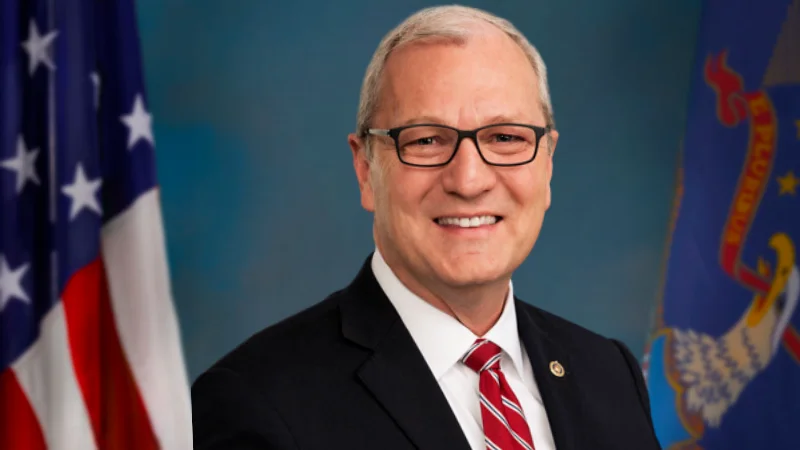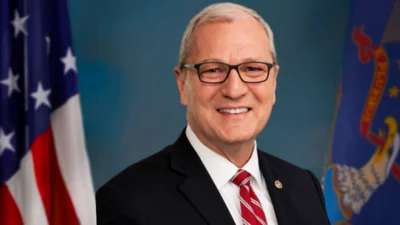Senator Kevin Cramer, US Senator for North Dakota | Senator Kevin Cramer Official website
Senator Kevin Cramer, US Senator for North Dakota | Senator Kevin Cramer Official website
Senator Kevin Cramer, who represents North Dakota in the U.S. Senate, shared updates on legislative efforts and meetings through a series of posts on his official Twitter account between July 31 and August 1, 2025.
On July 31, Cramer highlighted his recent appearance on Fox Business to discuss legislation he is co-sponsoring. He stated, "I joined @FoxBusiness to discuss the Payment Choice Act, my bill with @SenFettermanPA. Cash is legal tender, and it ought to be allowed at every retail outlet in America." The Payment Choice Act aims to ensure that cash remains accepted as a form of payment across all retail outlets nationwide.
Later that day, Cramer posted about a meeting with an executive from Amazon's satellite division. He wrote on July 31, "Met with @amazon Kuiper Government Solutions Vice President Ricky Freeman today. He updated me on Amazon building a constellation of LEO satellites that will provide commercial and military communications around the world." The mention refers to Amazon’s Project Kuiper initiative, which seeks to deploy low Earth orbit (LEO) satellites for global connectivity services.
On August 1, Senator Cramer encouraged public participation regarding an environmental policy under review by the Environmental Protection Agency (EPA). He posted, "I encourage North Dakotans to make their voices heard throughout the public comment period as @EPA reconsiders the endangerment finding." The EPA’s endangerment finding is a regulatory determination concerning greenhouse gases and their impact on public health.
The Payment Choice Act has drawn national attention amid ongoing debates about cashless retail trends and consumer rights. Similarly, Project Kuiper represents one of several major private sector efforts aimed at expanding internet access through satellite technology. The EPA’s endangerment finding has been a foundational policy in federal climate regulation since its original adoption in 2009.


 Alerts Sign-up
Alerts Sign-up